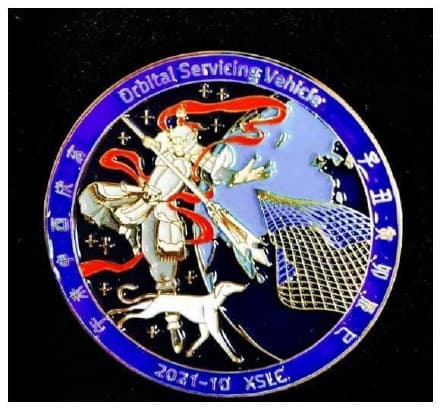China's Space Programs: A Unique Blend of Mysticism and Technology
China's Space Programs: A Unique Blend of Mysticism and Technology

28 January 2024
China's space programs have made significant strides in recent years, achieving numerous milestones and garnering global attention. One of the distinguishing features of these programs is the unique naming conventions used for their spacecraft, which reflect China's rich cultural heritage and its approach to space exploration. In this article, we will explore some of these names and their meanings, as well as the reactions of Chinese netizens to these poetic and often mystical labels.
Naming Conventions: Deeply Rooted in Chinese Culture
The naming conventions of China's space programs are a testament to the country's ancient wisdom and mysticism. Many of these names are drawn from Chinese mythology, philosophy, and traditional literature, reflecting the nation's rich cultural history. By giving their spacecraft such names, China's space program seeks to connect with the country's past while advancing its technological capabilities in the present.
Some of the most notable examples of this naming convention include:
- BeiDou Navigation Satellite System (BDS): BeiDou, which means "compass" in Chinese, is a constellation of satellites designed for providing global positioning, navigation, and timing services. The name BeiDou originates from the Big Dipper, a prominent asterism in the night sky that has been used for navigation and timekeeping in China since ancient times. The name reflects the system's intended function and pays homage to the country's rich astronomical history.
- Tianwen-1 Mars Mission: Tianwen, meaning "questions to the heavens," is a Mars exploration mission launched by China in 2020. The name is inspired by a poem written by Qu Yuan, a Chinese poet from the Warring States period (475-221 BC). In the poem, the author expresses his desire to explore the world beyond human understanding and raises philosophical questions about the nature of existence.
- Wukong Dark Matter Particle Explorer: Wukong, or the Monkey King, is a prominent figure in Chinese mythology. He is known for his intelligence, strength, and curiosity, and is often depicted as a symbol of wisdom and bravery. The spacecraft was named after the Monkey King to represent its mission of exploring the unknown and its potential to uncover new knowledge about the universe.
Reactions of Chinese Netizens
As with any cultural phenomenon, China's space program naming conventions have generated a wide range of reactions among Chinese netizens. Many have expressed pride in their country's unique approach to space exploration and praised the poetic and mystical nature of the names. One user, @张彬彬Vin, shared a video of a rocket launch, stating: "徐燕时倾情演绎北斗人的执着与努力,在长征发射🚀的激动场面是整部剧的核心体现。中国人的骄傲,致敬浪漫的航天人!"
Translation: "With Rui Yanshi, the role of BeiDou in the drama, performing the perseverance and dedication of the BeiDou team, the excitement of the Long March launch is the main highlight of the entire drama. This is the pride of the Chinese people, and we pay tribute to the romantic space engineers."
However, some users have expressed skepticism or cynicism about the names and their connection to China's space programs. One user commented, "中国人懂个寂寞西北风 北斗是两界虫洞的定位 长征通过虫洞输送本源 神舟是输送本源的丹炉," which can be translated as, "Chinese people know nothing but the northwest wind. BeiDou is the positioning of the wormhole between two worlds. Long March transports the source through the wormhole. Shenzhou is a cauldron for transporting the source." This comment appears to be a sarcastic reference to the mystical nature of the names.
Regardless of individual opinions, China's space program names have undoubtedly captured the imagination of Chinese netizens and sparked a conversation about the country's unique approach to space exploration. As the country continues to make strides in this field, it is likely that these poetic and mystical names will continue to play a significant role in shaping public perception of China's space endeavors.
Share this article
Related Articles

Alipay Users Rush to Revoke Permissions Over Hidden Authorizations, Sparking Nationwide Privacy Debate
By Trending on Weibo
Tech
15 Sept 2025

Pinduoduo’s “Journey to the West” Campaign Delivers Free Shipping to China’s Remote Western Provinces.
By Trending on Weibo
Tech
12 Sept 2025

Apple’s iPhone 17 Pro Camera Ignites an Industry Arms Race, Democratizes Visual Storytelling, and Fuels Privacy Debate.
By Trending on Weibo
Tech
12 Sept 2025

Huawei Launches World’s First Mass‑Produced Tri‑Fold Smartphone, the Mate XT, Sparking a Premium Market Shake‑Up
By Trending on Weibo
Tech
12 Sept 2025

Jackson Wang Films “Let Loose” Music Video Entirely on Apple’s iPhone 17 Pro, Highlighting Mobile Filmmaking Power】
By Trending on Weibo
Tech
11 Sept 2025